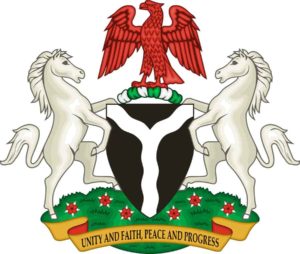The local government is like a missing piece to a political puzzle and without its existence the people will not experience the full effect of governance.
 The local government is very essential in political administration in the sense that it ensures people at the grassroots level are efficiently and effectively governed.
The local government is very essential in political administration in the sense that it ensures people at the grassroots level are efficiently and effectively governed.
There are three tiers of government in Nigeria which consists of the federal government, state government and local government.
According to the 1976 local government reforms, the local government is the third tier of government in Nigeria, and as such has limited powers over certain subjects or matters.
What is local government in Nigeria?
A local government can be defined as a system of government at the grassroots level of administration for meeting peculiar grassroots needs of the people. It is backed up by law in the discharge of its duties to the people locally.
It is charged with many responsibilities which need to be carried out effectively. Since it is the closest form of government to the people, it ensures that basic social amenities are provided to the people within its geographical area of jurisdiction.
The history of local government in Nigeria
During the colonial system administration in Nigeria, the local government was referred to as native authority or the administration system. Then, the local government system was controlled by only the chiefs and rulers which were not all sufficient because the people could not feel the full effect of governance.
Being under the full supervision of the British Administrative Officer, the local government system was not favourable to the interest of the local people because there was no chance for the local people to be elected to serve as a middle man between the people, and the colonial government.
There was trial and error to create a new local government system to favour the interest of the local people, but the native authority rulers’ new rule of levy and tax collection did not sit well with the local communities which made them to create their own traditional ways of carrying out such services. The native authority system was not the answer for local government governance because the rulers were only accountable to the colonial officers.
The insufficiency of governance then, could be solely blamed on the lack of Western education, and modern approach to ruling.
In 1946, the local government system in Nigeria was changed to the Sole Native Authority System which was greatly frowned upon by the Egba women who accused the system of increased gender imbalance, and hastening the marginalization of women.
In 1976, there came the reform, and the introduction of the constitution in 1979 which still could not solve the problem of traditional ruling in Nigeria. The local government system was faced with different issues which hindered the development of the local government.
There was a positive change in the local government administration system from 1979 to 1983, the state government had power over the local government council which was a good development.
The Buhari administration cut the local government from 701 to 301 which was later recorded in the constitution, but the system was still a failure as a result of inadequacies.
In 1984, Dasuki report confirmed the problems suffered by the local government system was inherited from the 1976 local government reforms which was as a result of personal factors.
1986 came with a drastic change in the system of administration, as old attitude was forfeited, and the federal government was in control of the basis of the local governments.
In March 1988, some comprehensive reforms were adopted by the federal government to change the local government structure, finance, and administrative system. More states, and local governments were created in 1987 despite the failures that resurfaced.
From 1999 till date, the local government system has gone through many reforms bringing it to the acceptable state it is now.
How many local governments in Nigeria?
Currently, there are 36 states in Nigeria with 774 local government areas. All states have its own local government areas. The local government is charged with lot of responsibilities, and with the presence of these local government areas in each state, the interest of the people at the grassroots level can be easily met.
Functions of local governments in Nigeria
- Provision of basic social amenities to the people within its geographical area of jurisdiction.
- Ensure that the lives and property of the people within its jurisdiction are safeguarded and protected.
- Ensure that motorable roads are constructed as well as maintained.
- Help to provide health care facilities for the people at the grassroots level.
- Ensure that all births, marriages, and deaths within its area of jurisdiction are duly registered.
- Provision and maintenance of sewage, and refuse disposal, public conveniences for people living within its jurisdiction.
- Provision of educational facilities for the people within its area of governance.
- Ensure that houses within its localities are properly numbered as well as streets and roads are properly named.
- Establish, maintain, and regulate markets, slaughter houses, motor parks, etc.
- Ensure the maintenance of natural vegetation within its locality to prevent soil and wind erosion.
Conclusion
The administration of local government system in Nigeria has come a long way facing both failure, and success. The local government system is very important because of the needs of the people at the grassroots level can be met without many problems.
